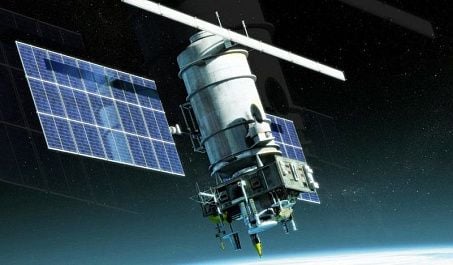Specialists of the Russian Space Systems Holding (RKS, part of the Roscosmos State Corporation) we have started creating multi-zone scanning devices (MSUs) for a new generation of Russian spacecraft of the Meteor series. Thanks to the improved IAS, scientists, meteorologists and emergency workers will receive digital multispectral images of the Earth's surface for forecasting and eliminating natural disasters, emergencies, monitoring weather and natural phenomena, and the development of agriculture in Russia.
Alexey Rublev, Deputy Director for Scientific Work of the Scientific Research Center "Planet" of the Federal Hydrometeorological Service of Russia:"In the world of space technology, spacecraft capable of conducting multisensory analysis are traditionally considered the most complex. Therefore, we support the promising developments of our scientists who are creating advanced target devices for the Meteor space complex. Roshydromet requires high-quality data with high frequency to solve the problems of analysis and weather forecasting on a regional and global scale. The new MSU will make the Meteor system one of the most modern hydrometeorological instruments."
A new generation of ICU is designed to operate in four different orbits. This construction of the orbital grouping will allow you to shoot the entire Earth every 3 hours. The new equipment will conduct round-the-clock satellite imagery of objects and the Earth's surface in 20 spectral channels with increased accuracy and resolution, which will allow observing a wide range of terrestrial processes and phenomena. A device of this level is being created exclusively on the basis of domestic electronic components for the first time.
Director of projects for the creation of remote sensing systems – Deputy General Designer of the RKS Viktor Selin: "We constantly analyze the operation of the existing Meteor-M devices and the data they receive to determine the factors that affect the quality of the transmitted information. These conclusions, as well as the wishes of consumers of the results of space surveys, are taken into account when improving the equipment being developed for new satellites."
The unique radiation cooling system will protect the multi–element photodetectors from external heat flows and will keep their temperature unchanged - 80K. This will allow the MSU to measure the thermal radiation of observed objects on Earth with an accuracy of 0.05 degrees Celsius.
High requirements for the "signal-to-noise ratio" characteristic of the new MSU determine the quality of the images obtained. For this purpose, a special matrix photodetector has been developed in the RCS on the basis of modern semiconductor technologies for the construction of integrated circuits (CMOS technology). Each element of the matrix has a separate built-in amplifier and analog-to-digital converter. Due to this, an original digital image is obtained at the output of the photodetector, and not an analog one, as in systems of previous generations.
Chief designer of the RKS direction Yuri Gektin: "Today we are increasingly using domestic electronic components, adopting extraordinary engineering solutions and finding unique ways to improve space equipment. In this project, for the first time in Russia, specialized 32-element photodetectors are being developed to guarantee the required quality and information content of images in the infrared spectral ranges."
The Russian orbital grouping of Earth remote sensing satellites includes, in particular, the Meteor and Canopus series spacecraft. In July 2022, 8 years of work in the orbit of Meteor-M No. 2, five years of Canopus–V-IK and three years of Meteor-M No. 2-2 were celebrated. The satellites successfully monitor the climate and environment, natural and man-made emergencies, and transmit signals from the COSPAS-SARSAT global search and rescue system. During their operation, the reliability of the onboard equipment developed and manufactured by the RKS was confirmed.
* * *
JSC "Russian Space Systems" (part of the State Corporation "Roscosmos") has been developing, manufacturing, testing, supplying and operating onboard and ground-based equipment and space information systems for scientific and socio-economic purposes since 1946. The main areas of activity are the creation, development and targeted use of the global navigation satellite system GLONASS; ground–based spacecraft control complex; space search and rescue systems, hydrometeorological support, radio engineering support for scientific space research; ground-based points for receiving and processing information from remote sensing of the Earth. The holding "Russian Space Systems" unites the leading enterprises of space instrumentation in Russia: the Scientific Research Institute of Precision Instruments (JSC "Scientific Research Institute of TP"), the Scientific and Production Association of Measuring Equipment (JSC "NPO IT"), the Scientific Research Institute of Physical Measurements (JSC "NIIFI"), the Special Design Bureau of MEI (JSC "OKB MEI"), Scientific and Production Organization "Orion" (JSC "NPO "Orion") and JSC "Yaroslavl Radio Plant" (YARZ).
ROSCOSMOS is a state corporation established in August 2015 to carry out a comprehensive reform of the Russian rocket and space industry. ROSCOSMOS ensures the implementation of state policy in the field of space activities and its regulatory and legal regulation, and also places orders for the development, production and supply of space technology and space infrastructure facilities. Its functions also include the development of international cooperation in the space sphere, as well as the creation of conditions for the use of the results of space activities for the socio-economic development of Russia.
* * *
Press release "Russian Space Systems"

